Centerpin Fishing Gear: A Guide Recommended List
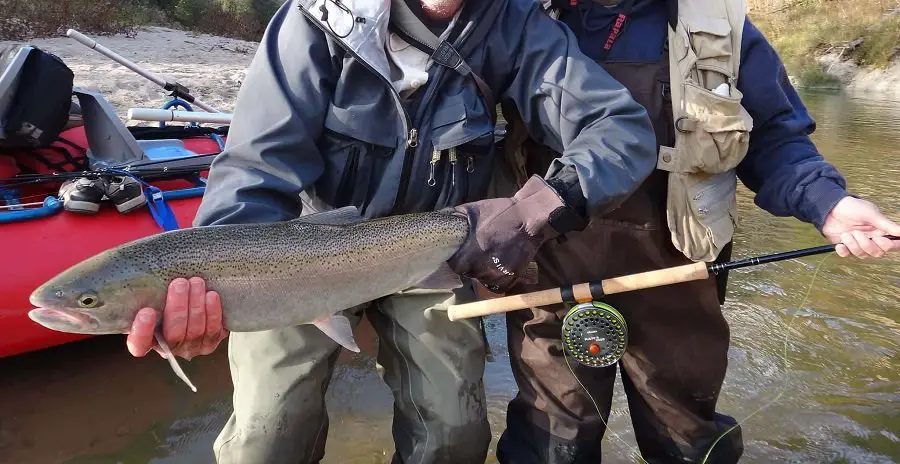
As one of the top centerpin fishing guides in my area, my guides and I spend hundreds of days on the river every year using and testing out lots of Centerpin fishing gear.
This article was originally made for my clients as an ongoing reference to help them choose the right gear for Centerpin fishing because, often, the advice on fishing forums or on the river is confusing or just wrong. It is updated annually.
Essential gear for Centerpin fishing will include a Centerpin rod, a Centerpin reel, a good Centerpin line, a float that is designed for river fishing, the right leader material, swivels, weights, hooks, and baits.
Centerpin Fishing Gear Table
| Category | Gear | Recommendation |
|---|---|---|
| Best Centerpin Reels | Okuma Sheffield | Best under $250 |
| Raven Matrix Fully Ported | Best under $350 | |
| Kingpin Zeppelin Centerpin Reel | Best Overall | |
| Best Centerpin Rods | Lamiglas “The Closer” Centerpin Rod | Best Rated Centerpin Rod |
| Raven IM8 Float Rod | Guide Recommended | |
| Shimano Clarus | Best Budget Rod | |
| Best Centerpin Line | Raven Main Line | Best monofilament line for Centerpin reels |
| Sufix 832 | Best braided line for float fishing | |
| Sufix Elite | Most popular and best for spinning reels | |
| Best Floats | Raven FM Float | Best of the Best |
| Drennan Loafer floats | Best For clear water | |
| Sheffield Floats | Good multi-purpose clear float | |
| Blood Run Floats | Popular Float | |
| Best Leaders | Drennan Leader | in 3 to 6 pounds |
| Seaguar Abraz-X | 6 to 8 pounds | |
| RIO Fluoroflex | 8.5lb | |
| Best Weights | Sure Shots | in size BB and AB |
| Blackbird split shots | in size BB-1 and BB-2 | |
| Best Swivels | Raven micro swivels | small to XXX-small |
| Best Hooks | Raven Wide Gape Specimen Hook | in sizes 6, 8, and 10 |
| Raven Sedge Hooks | in sizes 6, 8, 10 | |
| Gamakatsu Octopus hook | Sized 6 to 10 |
Other gear includes tools like nippers, forceps, scissors, and landing nets. You will also do better along the river if you have wading gear, such as waders, vests, or packs, and appropriate clothing, especially if you fish in the winter.
The gear you use to centerpin fish is important. I have seen guys come out on guide trips with the wrong gear or bad gear, and they really struggle to learn or fish properly. Don’t be that guy! Everything I recommend is the gear I use, and I use it for good reasons.
This page contains affiliate links. If you buy something through one of these links we may make a small commission which is at no cost to you. Commissions allow us to continue to bring you great content. Thank you for your support. Affiliate Policy
What Centerpin Fishing Gear Do I Need?
Let me just start by saying that all your Centerpin gear needs to work well together.
Having a great rod and reel only goes so far if you are using the wrong line, leader, wrong hook, or the wrong float.
I’ve seen guys come out with really nice reels and rods but the wrong main line, and they struggle with it all day. I’ve also had guys come out with me after trying to learn and catch fish on their own, and they fish well, but then I determined their leader was so thick no fish would bite.
If you want to be one of those guys who seems to catch a lot of fish every time they hit the water, then getting all your gear right is the first step.
The Best Centerpin Reels

Let’s face it, the Centerpin reel is what makes Centerpin fishing what it is. Centerpin fishing is simply float fishing but with a Centerpin reel. Some anglers even call them float reels.
You could float fish with a spinning reel, but a Centerpin reel is so much better at controlling your drifts and giving you a better presentation.
Are More Expensive Centerpin Reels Actually Better?
More expensive Centerpin reels are better for many reason, but that doesn’t mean you will catch more fish just because your Centerpin reel is more expensive.
I will catch just as many fish on a $199 Okuma Sheffield as I would on a $1000.00 Kingpin reel, and trust me, I have used both.
The reason for this is that a Centerpin reel is very, very basic. It simply holds the line, and it spins: That’s it!
In fact, the more expensive Centerpin reels have better bearings, and they might spin a little better or smoother, but it’s such an insignificant difference that I can not honestly say that I could catch more fish with a $700 reel than I could with a decent $200 reel.
Let me just say when it comes down to catching fish on most Centerpin reels, it’s not the reel that catches fish, it’s the user!
So the difference between a $700 dollar reel and a $200 reel is the smoothness of the reel, the finish, probably better handles, a weight difference, and the looks. Oh, and bragging rights!
The upside to a better Centerpin reel is that it will likely have fewer problems, and it will probably last longer.
My suggestion is to buy the best reel you can afford over $170.00, otherwise you may end up with junk that will make it harder for you to learn and harder to catch fish.
If you want to see more Centerpin reels, go to my page 23 Best Float Fishing Reels: Buyers Guide.
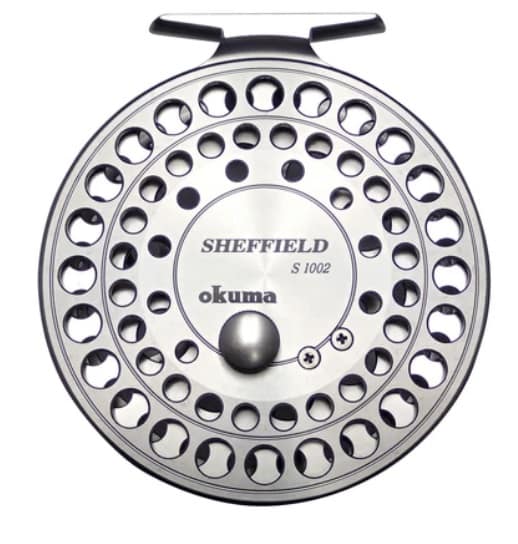
Okuma Sheffield
I guided with three of these reels for a few years and it was great for a Centerpin reel for under $200.00.
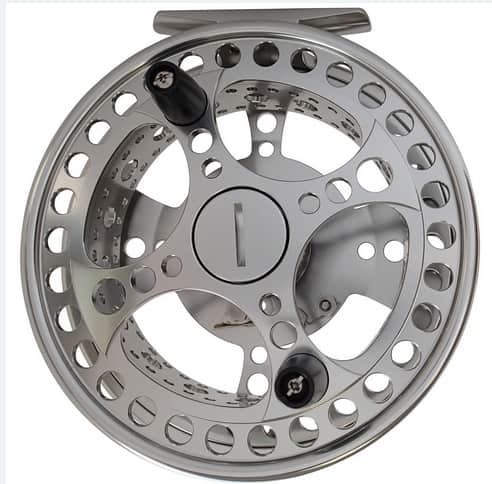
Raven Matrix Fully Ported
The Raven Matrix Fully Ported is the reel that I currently guide with and is an excellent choice for just under $300.00.
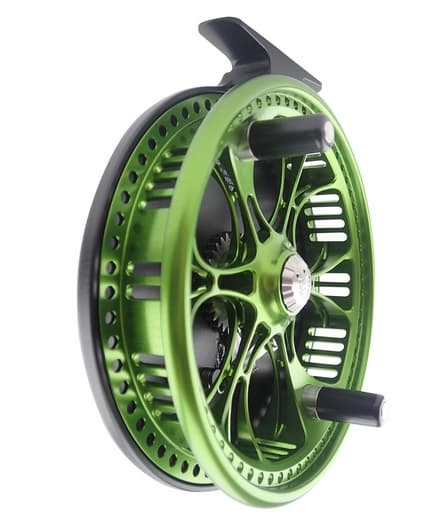
Kingpin Zeppelin
This is one of the nicest Centerpin reels on the market and is one that I have used many times. It comes in a few cool colors.
Best Line For Centerpin Fishing
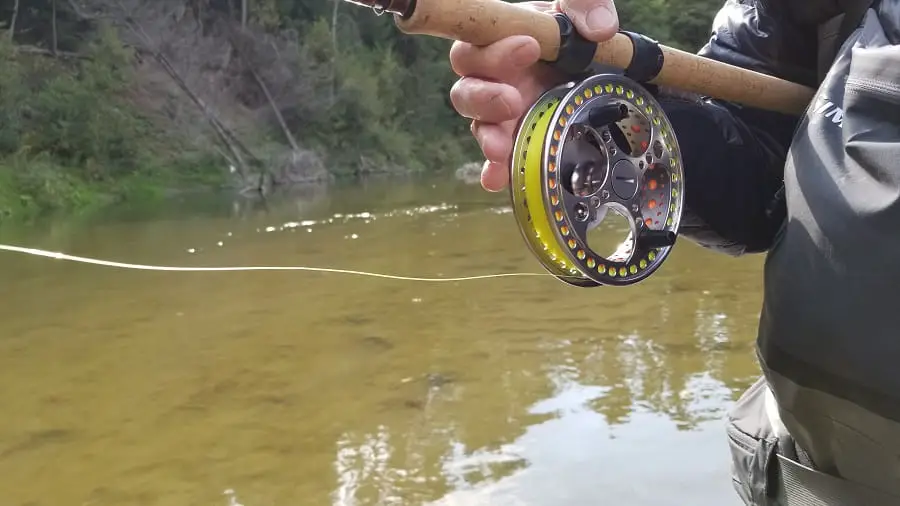
The line you put on your reel is very important. Some lines cast better, some come off the reel and fish better, some are thinner so they sag less, and some are more buoyant. All of this adds up to better fishing and more fish.
The line that you put on your Centerpin reel should be a monofilament line or braided line, and it should be thin, strong, supple, and buoyant. Not all mono lines are good for Centerpin fishing.
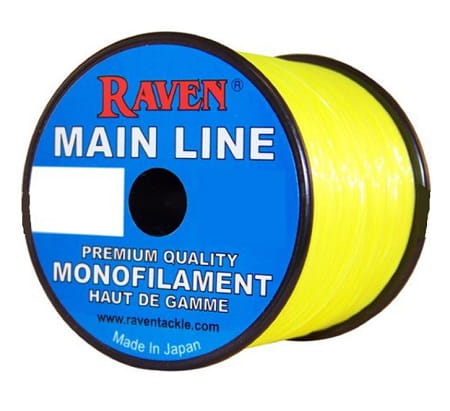
I use the 8-pound Raven High-Viz mainline for every river that I fish and guide on around the Great Lakes region, except for 10-pound line if I fish the Niagara River or West Coast rivers. I might increase to 12 pounds if I’m fishing for salmon.
There are times when you may need a heavier line but remember that a heavier line can cause more problems like line sag, sinking line, poor casting, and even more line tanglers. For this reason, always go with the lightest mainline as possible.
See more about that and lines that I recommend on my page 5 Best Float Fishing Lines.
Before you put your line on your reel, with many Centerpin reels you will need a backing line. The backing line is simply a line that goes on first and goes under your mainline.
The backing simply fills up the spool so that you do not need to put as much mainline on. A full spool is best, and the fuller the spool, the faster the line and your float will reel in. A full spool tends to cast better as well.
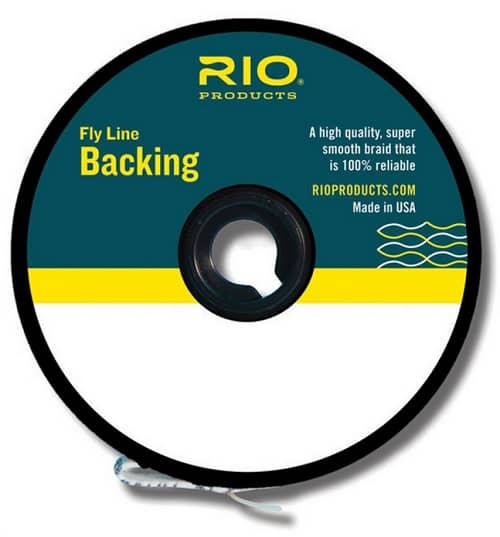
I usually fill the Centerpin spool about halfway or two-thirds with the backing. You will need about 100 to 200 yards. For line backing I use Cortland backing, which you can get at FishUSA.com
The Best Centerpin Rods
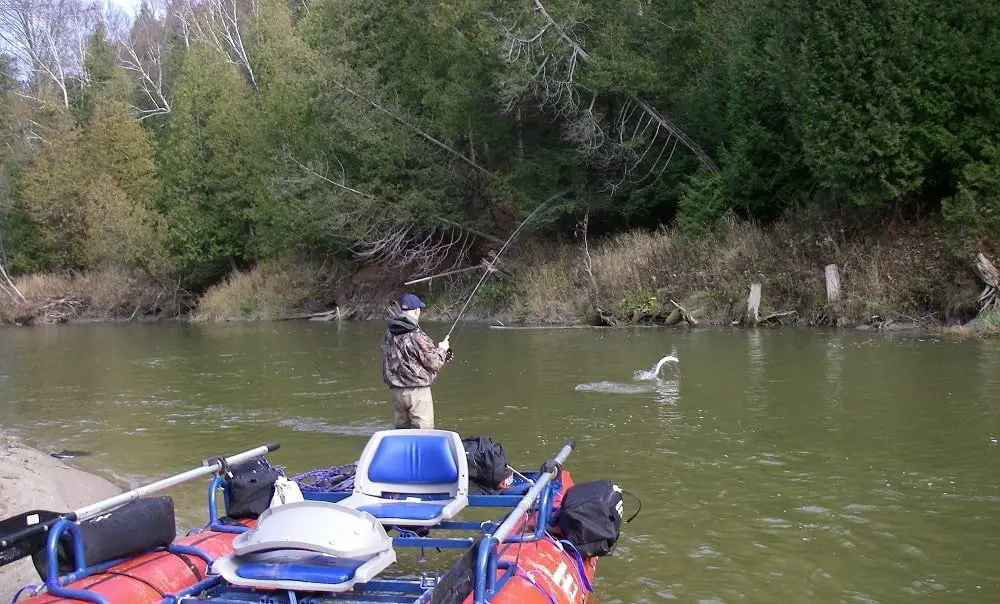
The next piece of essential Centerpin gear you need is a good Centerpin Rod. I actually think it’s better to spend more on a rod than to spend more on the reel.
Centerpin rods are long for a reason. Most Centerpin rods are between 12 and 14 feet long. You may find 14 and 15-foot Centerpin rods are more common out west on the bigger steelhead rivers.
Whether it’s 12 feet or 15 feet long, the extra-long Centerpin rod allows you to keep the line off the water for a better and longer drift, and the extra-long rod also protects your light leaders when fighting big fish.
For small creeks, a 10 to 12-foot rod could also be a good choice, especially if there is a lot of bush that you need to walk through or fish under.
For medium-sized rivers of 25 to 70 feet wide, a 12 to 13.5-foot rod is a great choice. For very large rivers that are 70 feet or wider, a 13 to 15-foot rod is a good idea.
You also need to consider what reel handle type is best for you. I prefer the sliding rings reel seat over the fixed rings.
For more on handles and how to secure the reels, as well as a complete Centerpin rod sizing chart, go to my page 7 Best Centerpin Rods: Buyers Guide.
The 3 Centerpin rods that I recommend are:
- Raven IM8 Centerpin Rod – This is the rod I guide with and is one of the most popular rods. Check Price at FishUSA.com
- Raven RPX Centerpin Rod – Another popular rod. You can check prices at FishUSA.com
- GLX-Loomis Centerpin Rod – The 13-foot Medium light is a great rod for most great lakes fishing. Check Price at FishUSA.com
The Best Centerpin Floats
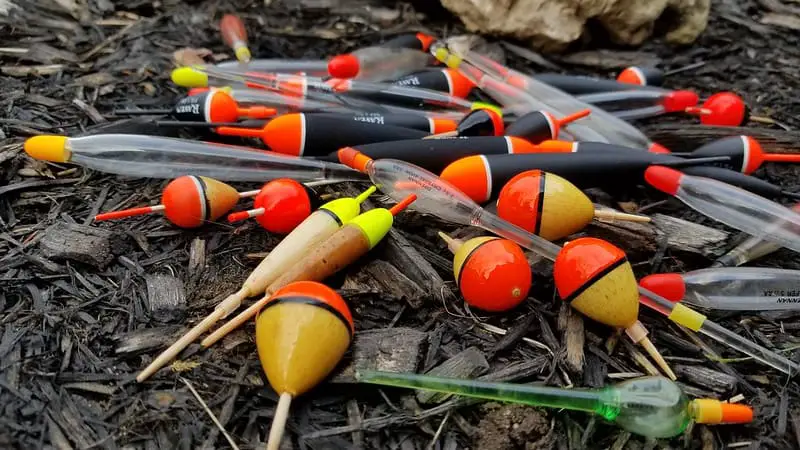
Floats are important. The right float can improve your presentation, meaning more fish in the net. The wrong float will make it harder to get a good presentation.
I use different floats for clear water, shallow water, nervous fish, and in normal conditions. Knowing what floats to use and when will help you catch more fish.
The best float for Centerpin fishing on most medium-sized rivers around the Great Lakes region is the Raven FM float. Raven FM floats in a 4 to 6.2-gram size are the ones that I guide with most of the time. West Coast rivers where more weight is required means you may need floats 12 to 16 grams. You can get them at FishUSA.com
For clear water conditions on smaller steelhead and trout rivers, I use the Drennan Loafer Floats in the size 2 to 4 grams.
For more information on the best floats and how I rig them, check out my page 5 Best Centerpin Floats For 2021
The Best Leaders For Centerpin Fishing
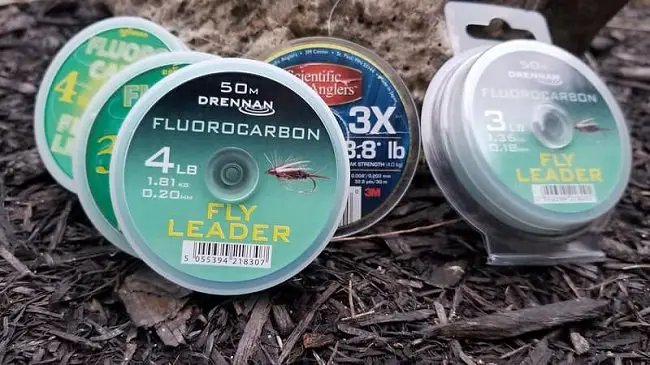
There are right leaders and wrong leaders for Centerpin fishing.
I use three different brands of leaders, and I always use fluorocarbon leaders when steelhead fishing. The best leaders for Centerpin fishing are
- Drennan Leader: in 3 to 6 pounds – Very popular – 4 pounds is my go-to size for steelhead in the Great Lakes region. 5 and 6 pounds is good for west coast steelhead.
- Seaguar Abraz-X: 6 to 8 pounds – 6 and 8 pounds – 6lb is ideal for Great Lakes steelhead, 8 and 10 pounds is good for bigger river steelhead.
- RIO Fluoroflex 6lb to 8.5lb – 6lb is ideal for Great Lakes steelhead, 8 and 10 pounds are good for bigger water and West Coast steelhead
Many leaders are not rated properly, and since Steelhead can be line-shy it’s essential to use the right leader. The wrong leaders will either mean no bites, or it could mean too many break-offs.
To learn how to set up your leader properly, go to my page Steelhead Leaders: Best Float Leader And 2 Proven Setups.
The Best Swivels For Centerpin Fishing
For all my Centerpin leader setups, I use the Raven micro swivels. Good swivels are the XXL Micro Swivels from Raven or Blackbird.
The Best Weights For Centerpin Fishing
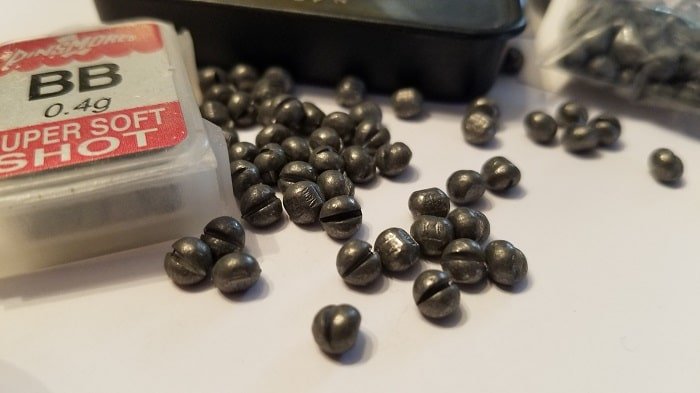
I use a lot of weight when Centerpin fishing. I use something called a shot line, which is a slightly thicker piece of line that is meant to help my split shots, the shot line goes between my mainline and lower leader.
The best-split shots for Centerpin fishing are the Sure Shots in sizes BB and AB, or the Blackbird split shots in size BB-1 and BB-2.
The Best Hooks For Centerpin Fishing
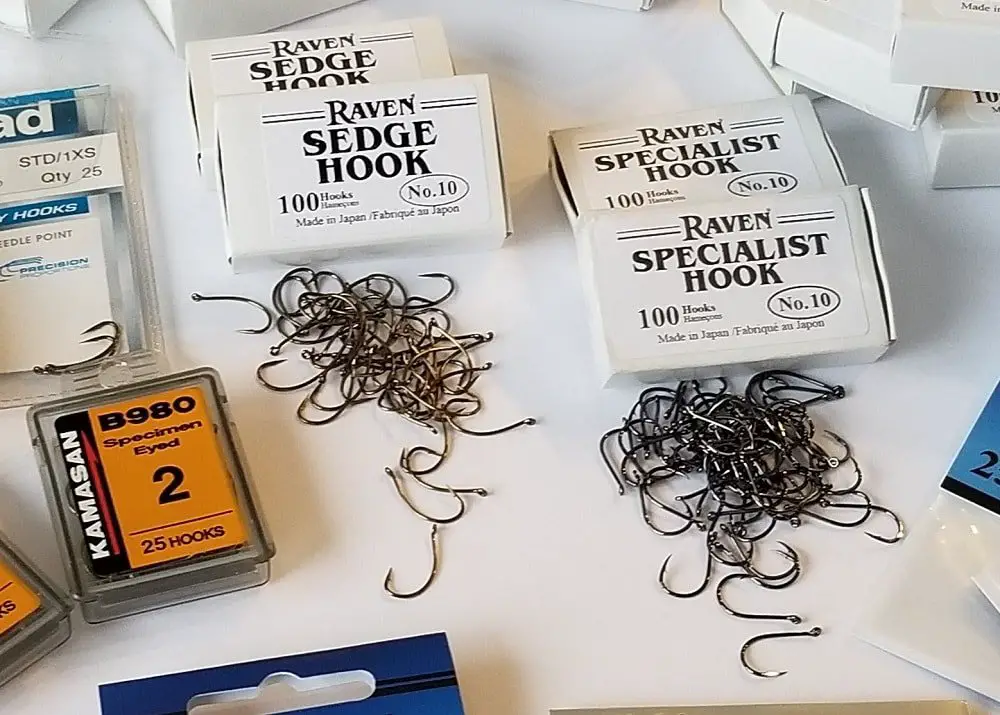
Hooks are a very important. Not all bait hooks are good and you should be picky about your hooks because if you think about it, the hook is the only thing that is keeping that fish connected.
The best hooks for Centerpin fishing will be short shank hooks with a large gap, and they will not be too big for your bait and also not so small that they will tear out of the fish’s mouth easily. The best hooks for Centerpin fishing are the Raven Specimen hook and the Raven Sedge hooks.
You should have these hooks with you when Centerpin fishing:
- Raven Wide Gape Specimen Hook in sizes 4, 6, 8, and 10 – My favorite all-purpose hook. I use the size eight and size ten the most.
- Raven Sedge Hooks in sizes 6, 8, and 10 – These are good hooks for a stealthy presentation. I use sizes 8 and 10 for most steelhead fishing.
- Gamakatsu Octopus hook: Sized 6 to 10
For more info on the best hooks and why I use the ones that I do, go to my page 4 Best Float Fishing Hooks.
The Best Baits For Centerpin Fishing
The bait is important because with out the right bait, it doesn’t matter how good your gear is.
I use a lot of plastic worms, beads, spawn bags, and flies. Knowing when to use them and what sizes and colors are best in different conditions can be a bit confusing. Check out these great pages of mine:
- Fishing With Beads: 5 Guide Tips For More Fish
- Fishing With Worms For Trout and Steelhead: 10 Guide Tips
- Spawn Bags – Guide Secrets For More Fish
- 5 Best Flies For Steelhead – An Expert Guides Advice
- 4 Best Steelhead Baits
The Other Centerpin Gear
Having the right waders, boots, wading jackets, and all the other stuff that will make your day on the water more productive and more comfortable is also something to consider.
I cover stuff like the waders and other gear that you would wear, as well as the tools I use, which include forceps, nippers, and nets, all on my page River Fishing Gear: Everything You Need To Succeed In 2021.
The Centerpin Fishing Leader Setup
The leader setup is important and this is something that many of my customers want me to show them. If you set this up right, you will be able to present your bait better, and that will mean more fish in the net for you.
Check out my page 2 Float Fishing Leader Setups From A Pro River Guide.
The Final Step – Learn How To Centerpin Properly
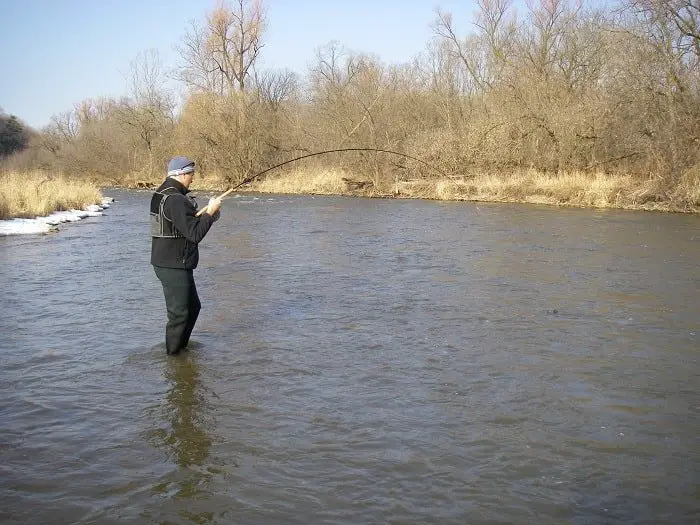
Now that you have all your gear, you just need to know how to use it.
A good start to help you learn to Centerpin fish better and for my four fundamentals of Centerpin fishing, visit my page Float Fishing: Tips From A Pro River Guide For More Trout.
Winter Centerpin Fishing
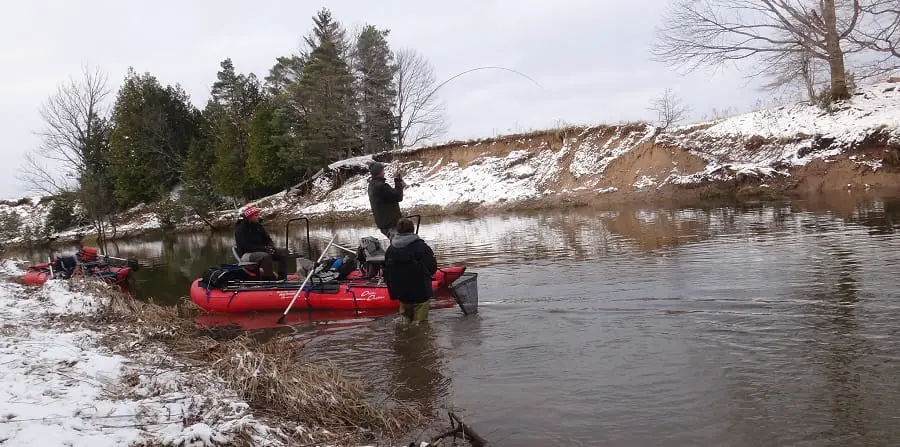
Some of the best Centerpin fishing for steelhead happens in the coldest months, and if you are not prepared you can freeze.
My guides and I are often standing in waist-deep water for hours and for days and days every year. If you plan to do winter fishing, and you want to know how I stay warm and comfortable, you should check out these two pages.
- How To Keep Fishing Rod Guides From Freezing – 3 Guide Tips
- Fishing In The Winter – Stay Warm With These 10 Tips
Tight Lines,
Graham
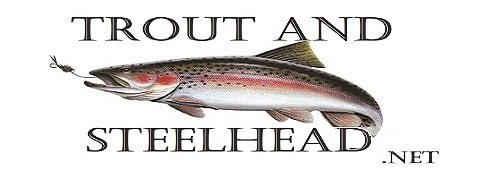
Hi Graham I have a 13ft medium moderate 8-17lb Luhr Jensen Legacy float rod and I find it too heavy when using lighter line and 4-7gram floats for steelhead. I don’t have control on hooksets or casting and managing the line on a drift. I was thinking about getting a Raven 13ft IM8 but someone said I should go with an even lighter rod. I will mainly be fishing the nottawasaga and other medium sized rivers. I Know you guide with the IM8 but I just wanted to hear what you recommend for a strictly steelhead rod around $300 or under.
Thanks, Alex